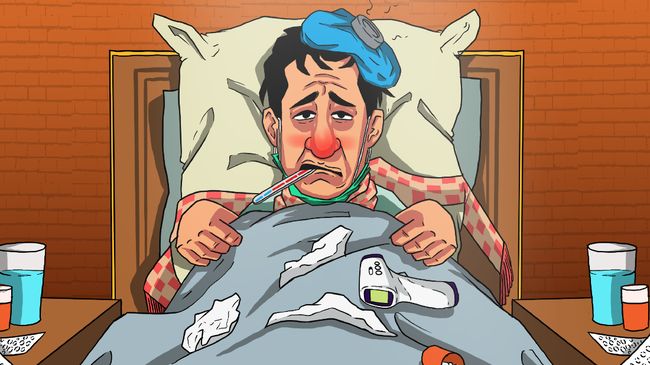Jakarta, CNBC Indonesia – A recent study revealed the fact that the Omicron BA.5 subvariant is more likely to trigger reinfection, than the Omicron BA.2 subvariant that dominated during the peak of the Covid-19 pandemic wave some time ago.
Research from Portugal showed, 10% of BA.5 cases were reinfected patients. Meanwhile, in BA.2 cases, reinfection was only reported in 5.6% of the total analyzed cases.
ADVERTISEMENT
SCROLL TO RESUME CONTENT
–
The investigators studied 15,396 adults infected with the BA.2 variant and 12,306 infected with BA.5. However, scientists found the two-dose Covid-19 vaccine appeared to be less effective at reducing the risk of severe COVID-19 symptoms in Omicron BA.5 cases than Omicron BA.2.
“Among those infected with BA.5, booster vaccination was associated with a 77 per cent and 88 per cent reduced risk of COVID-19 hospitalization and death, respectively, while a higher risk reduction was found for BA.2 cases, with a 93 per cent preventative case. hospitalizations and 94 percent of deaths,” the researchers wrote.
However, the researchers said the Covid-19 booster vaccination still provided strong protection to prevent cases of severe COVID-19 symptoms due to BA.5.
Damage Heart Muscle Cells
The spike protein on the surface, which the virus uses to infect, also gets into heart muscle cells and triggers an attack that damages the immune system. The new research also highlights that the SARS-CoV-2 protein specie interacts with other proteins in cardiac myocytes that cause inflammation.
Researchers in a presentation at the American Heart Association’s 2022 Basic Cardiovascular Science Scientific Session on Wednesday (27/7), conducted experiments with mouse hearts. Comparing the effects of the SARS-CoV2 spike protein and spike protein from different and relatively harmless coronaviruses.
Not only that, the researchers also found that only the SARS-CoV-2 spike protein caused heart dysfunction, enlargement, and inflammation.
In infected heart muscle cells, only the SARS-CoV-2 spike interacts with the TLR4 protein (Toll-4-like receptor), a protein that recognizes invaders and triggers an inflammatory response.
Meanwhile, in patients who died with COVID-19 inflammation, the researchers found SARS-CoV-2 spike protein and TLR4 protein in both heart muscle cells and other cell types. Neither is present in a healthy human heart biopsy.
“That means once the heart is infected with SARS-CoV-2, it activates TLR4 signaling,” said Zhiqiang Lin of the Masonic Medical Research Institute in Utica, New York in a statement.
“We provide direct evidence that spike protein is toxic to heart muscle cells and narrow down the underlying mechanism because spike protein directly inflames heart muscle cells,” he told Reuters.
“More work is being done in my lab to test whether and how the spike protein kills heart muscle cells.”
Next Article
Effective! Here are 8 Ways to Prevent Covid-19 During Eid Homecoming
–
–
(cha/cha)
–


